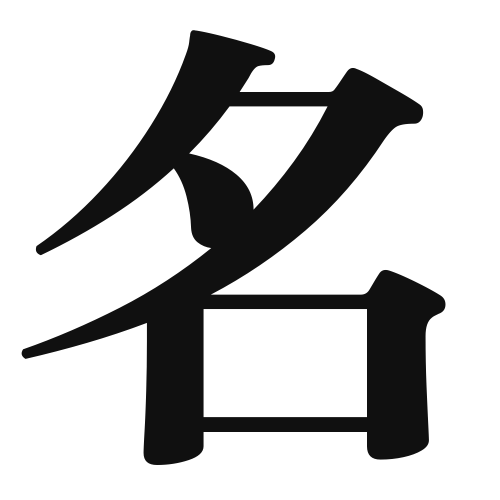1. Overview of Meaning
The kanji “名” (pronounced “mei” or “na”) means “name” or “fame.” It is used to refer to a person’s name, a title, or a reputation.
2. Formation and Radical
The kanji “名” is a phonetic-ideographic character (形声文字), which combines a meaning component and a phonetic component. The left part, “口” (kuchi), means “mouth,” indicating the act of speaking or naming, while the right part, “夕” (yū), contributes to the pronunciation.
The radical of “名” is “口,” which is commonly associated with speech or verbal communication.
3. Examples of Usage
Common words and phrases that include “名” are:
- 名前 (namae) – name
- 有名 (yūmei) – famous
- 名刺 (meishi) – business card
Example sentences in daily conversation:
- あなたの名前は何ですか? (Anata no namae wa nan desu ka?) – What is your name?
- 彼は有名な作家です。 (Kare wa yūmei na sakka desu.) – He is a famous writer.
4. Synonyms and Antonyms
Similar kanji with related meanings include:
- 称 (shō) – to call or to name, often used in formal contexts.
- 名声 (meisei) – fame or reputation, which emphasizes public recognition.
Antonyms include:
- 無名 (mumei) – unknown or nameless, indicating a lack of recognition.
5. Cultural and Historical Background
The kanji “名” is deeply rooted in Japanese culture, where names hold significant importance in identity and social status. In Japan, the act of naming is often accompanied by rituals and traditions.
Proverbs and idiomatic expressions that include “名” are:
- 名は体を表す (Na wa karada o arawasu) – A name represents the body, meaning that a person’s name reflects their character or reputation.
